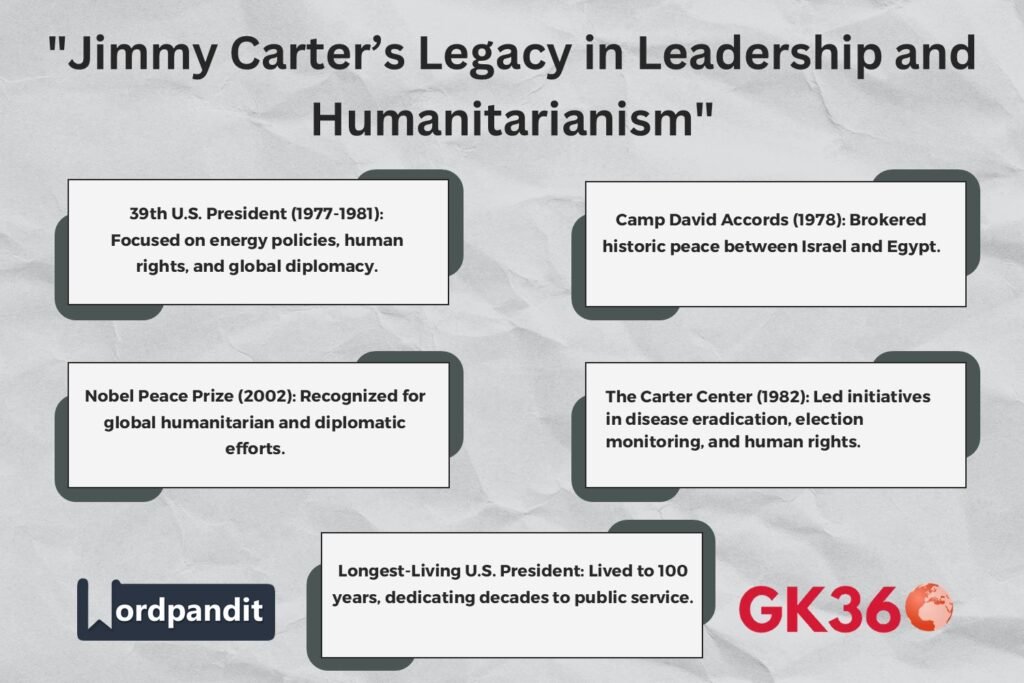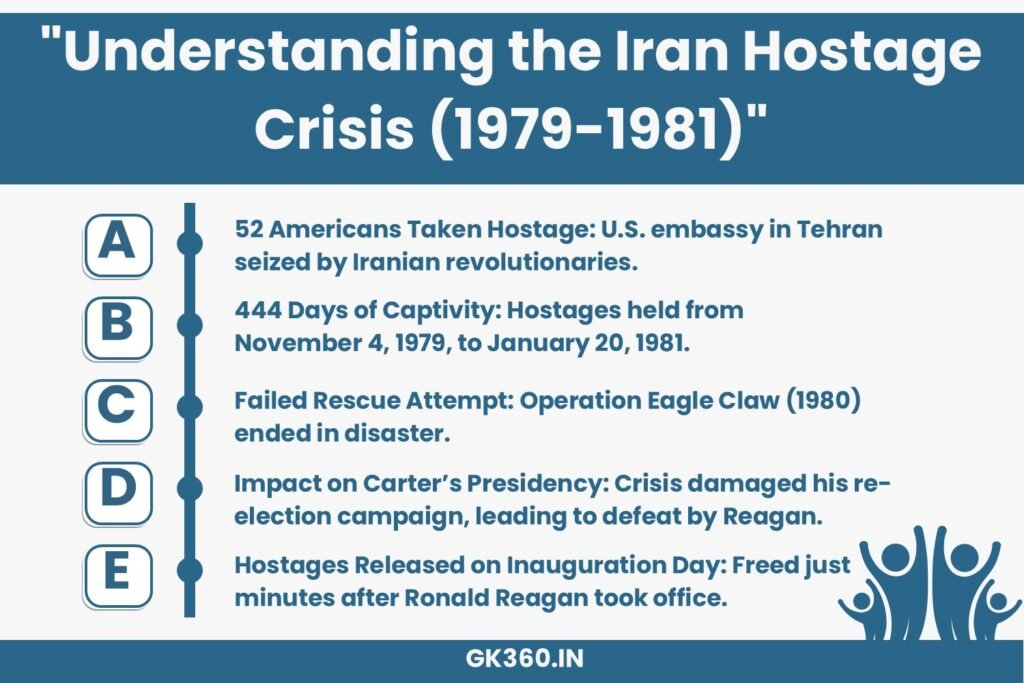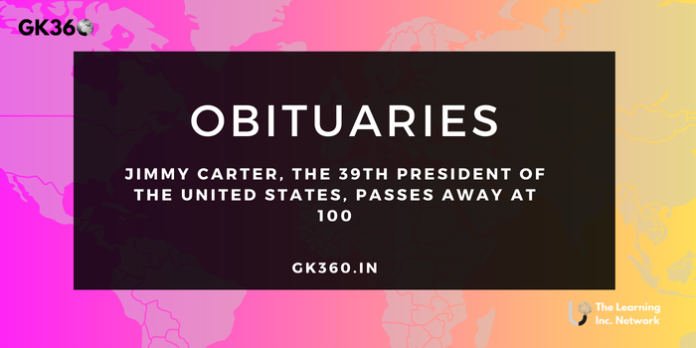Jimmy Carter: A Legacy of Leadership, Humanitarianism, and Global Peace
Introduction
Jimmy Carter, the 39th President of the United States and a globally recognized humanitarian, passed away at 100 years old on December 29, 2024, in Plains, Georgia. Known for his unwavering moral compass and dedication to public service, Carter’s legacy extends far beyond his presidency. From brokering the Camp David Accords to receiving the Nobel Peace Prize in 2002, Carter’s contributions shaped both American history and international diplomacy.

Table of Contents
- Early Life and Military Service
- Jimmy Carter’s Presidency (1977-1981)
- Post-Presidency Humanitarian Work
- Carter’s Global Diplomatic Efforts
- Personal Life and Legacy
- FAQs
- Conclusion & Call to Action
Early Life and Military Service
- Born: October 1, 1924, in Plains, Georgia.
- Raised on a peanut farm, which shaped his strong work ethic and values.
- Graduated from the United States Naval Academy (1946) and served in the U.S. Navy’s nuclear submarine program.
- Returned to Georgia after his father’s death to manage the family business.
Jimmy Carter’s Presidency (1977-1981)
Domestic and Economic Challenges
- Faced a severe economic recession, marked by inflation and high interest rates.
- Focused on energy conservation and launched policies to reduce U.S. dependence on foreign oil.
The Camp David Accords (1978)
- One of Carter’s greatest achievements.
- Brokered a peace treaty between Israel and Egypt, ending decades of conflict.
- The agreement remains a cornerstone of Middle Eastern diplomacy.
The Iran Hostage Crisis (1979-1981)
- Began when 52 American diplomats and citizens were taken hostage in Tehran.
- Despite diplomatic efforts, hostages were only released on January 20, 1981, as Ronald Reagan took office.
- The crisis heavily impacted Carter’s re-election campaign, leading to his defeat to Reagan.
Post-Presidency Humanitarian Work
- Founded The Carter Center (1982) to promote human rights, health initiatives, and democratic governance.
- Led initiatives to combat diseases like Guinea worm and monitor global elections.
- His post-presidential work earned him the Nobel Peace Prize (2002) for his efforts in conflict resolution and diplomacy.
Carter’s Global Diplomatic Efforts
- Mediated peace negotiations in North Korea, Haiti, Ethiopia, and Bosnia.
- Advocated for human rights and democracy worldwide.
- Frequently challenged U.S. policies he disagreed with, including the Iraq War.
Personal Life and Legacy
- Married Rosalynn Carter (1946); their partnership spanned nearly eight decades.
- Known for his strong Christian faith, which influenced his humanitarian efforts.
- Authored multiple books covering topics from politics to global peace.
- Remained active in philanthropy and global issues well into his later years.

FAQs
- What was Jimmy Carter’s most significant achievement as president? His mediation of the Camp David Accords (1978), which established peace between Israel and Egypt.
- Why did Jimmy Carter win the Nobel Peace Prize? For his humanitarian efforts, conflict resolution work, and dedication to democracy and global peace.
- What was the Iran hostage crisis? A 444-day ordeal in which 52 Americans were held hostage in Iran, significantly impacting Carter’s presidency.
- What did Jimmy Carter do after his presidency? He founded The Carter Center, promoted disease eradication, human rights, and fair elections worldwide.
- How did Jimmy Carter contribute to diplomacy? He mediated peace talks in global conflicts, including efforts in North Korea, Haiti, and Bosnia.
Conclusion & Call to Action
Jimmy Carter’s legacy is one of leadership, integrity, and humanitarianism. As the longest-living U.S. president, he redefined what it means to serve beyond the White House. His dedication to peace, diplomacy, and public service continues to inspire leaders worldwide.
📌 Stay informed on historical and global affairs. Follow gk360.in for insightful articles on world leaders, politics, and humanitarian efforts. 🌍
Key Takeaways
| Aspect | Details |
|---|---|
| Born | October 1, 1924, in Plains, Georgia. |
| U.S. Presidency | 1977-1981, focused on peace, human rights, and economic reform. |
| Historic Achievement | Camp David Accords (1978) – Israel-Egypt peace treaty. |
| Major Crisis | Iran Hostage Crisis (1979-1981), lasting 444 days. |
| Post-Presidency Impact | Founded The Carter Center (1982), eradicated Guinea worm disease. |
| Global Recognition | Won Nobel Peace Prize in 2002 for humanitarian work. |
| Death | December 29, 2024, at 100 years old in Plains, Georgia. |
Relative Terms
- Jimmy Carter Legacy
- 39th U.S. President Achievements
- Camp David Accords History
- Iran Hostage Crisis Explained
- Carter Center Humanitarian Work
- Nobel Peace Prize Winners
- U.S. Presidents and Diplomacy
- Jimmy Carter Death & Tribute
- Global Humanitarian Leaders
- Political Impact of Iran Hostage Crisis





